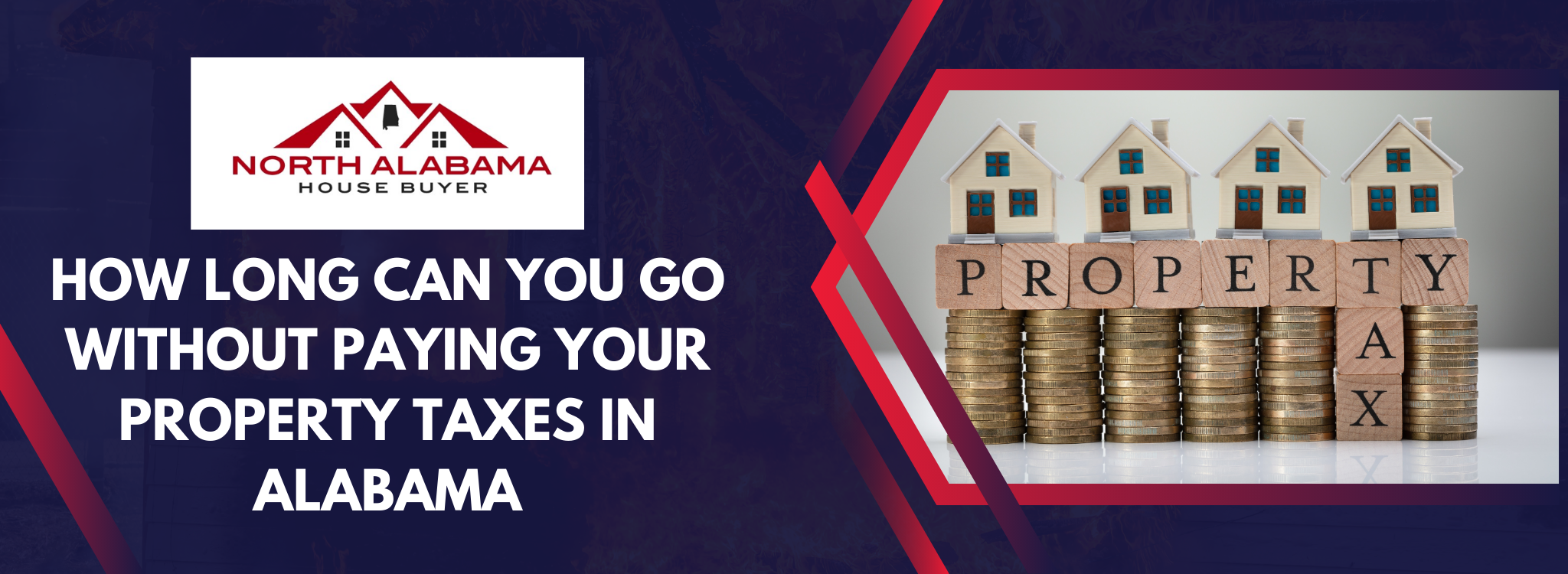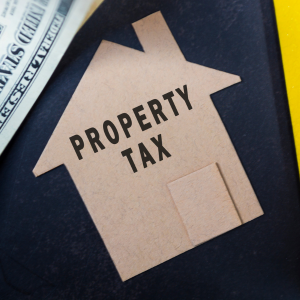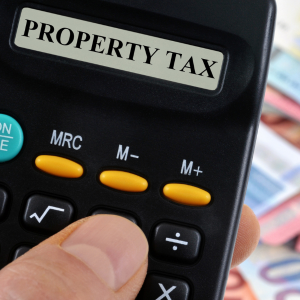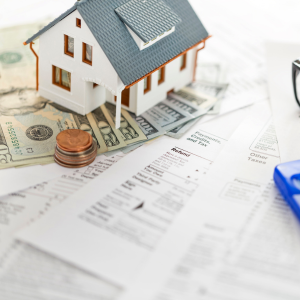
Why Is Property Tax Payment Important in Alabama?
What Role Do Property Taxes Play in Alabama’s Public Services?
In Alabama, property taxes are significant for paying for schools, roads, and emergency services. These taxes give communities the money they need to run smoothly and improve the quality of life for their people. Homeowners personally contribute to the growth and well-being of their community by paying property taxes.

How Does Timely Tax Payment Affect Your Property Ownership?
Paying your property taxes on time is crucial in Alabama to prevent late property tax issues. Should you be late with your payments, you may have to pay fines, interest rates rise, or even lose your property via tax sales. Making timely payments preserves your property rights and keeps you out of legal hotbeds.
What Are the State Regulations Regarding Tax Payments?
Alabama has specific regulations and guidelines that homeowners must follow for tax payments. These rules ensure that property taxes are collected fairly and include detailed procedures and deadlines. Understanding Alabama’s property tax laws is essential to avoid penalties and interest charges.
How Does Alabama’s Tax System Compare to Other States?
The Alabama tax system is unique because property tax rates are often lower than in many other states. Homeowners need to know how Alabama taxation differs from other areas regarding budgeting and financial planning.
Who Oversees Property Tax Collection in Alabama?
The revenue commissioner and county tax offices are among the entities in charge of collecting property taxes in Alabama. Property taxes are assessed and collected by each county’s tax agency. Contacting these offices might offer helpful information and assistance with your tax responsibilities.
Consider consulting a legal professional or local county tax office for expert advice or concerns about property tax payments. Ensuring compliance with Alabama state regulations can help safeguard your property rights.
North Alabama House Buyer advises homeowners to consult with experienced professionals when dealing with complex property tax issues. Seeking expert guidance can help clarify tax obligations, minimize legal risks, and ensure a seamless resolution.
How Can I Determine My Property Tax Liability in Alabama?
Determining property tax liability in Alabama involves understanding several factors that affect your property’s assessed value.

What Factors Influence Property Tax Assessments?
In Alabama, various factors influence property tax assessments:
- Property Value Appraisal: An appraiser evaluates your property to determine its market value. Key considerations include location, size, and condition.
- Property Improvements: Renovations or improvements can increase your property’s value, impacting your tax assessment.
- Valuation Methods: The state applies specific methods to reflect proper market conditions, helping clarify how it determined your property’s value.
How Can You Access Your Property Tax Assessment Records?
To access your property tax assessment records in Alabama:
- Visit Your County’s Tax Assessor’s Website: Many counties offer online platforms where you can search for property records using your tax account number.
- Contact Your Local Tax Assessor’s Office: For detailed inquiries, you may need to visit or call your local office.
- Use Statewide Property Search Tools: These allow you to search property records across multiple counties.
These resources offer valuable insight into how authorities have valued your property.
How Do Homestead Exemptions Work in Alabama?
Homestead exemptions in Alabama offer property tax relief to eligible homeowners:
- Eligibility: Homeowners must use the property as their primary residence. Additional criteria may apply.
- Types of Exemptions: Various exemptions exist, including those for senior citizens, disabled individuals, and veterans, each offering different levels of tax relief.
- Application Process: To apply, submit an application to your local county tax office with the required documentation by the deadline.
Applying for appropriate exemptions can reduce your tax burden.
What Is the Process for Disputing a Tax Assessment?
If you believe your property tax assessment is inaccurate, you can dispute it:
- Review Your Assessment Notice: Check for discrepancies.
- File a Written Appeal: Write to your local Board of Equalization, outlining your dispute and providing evidence.
- Attend a Hearing: Present your case at a scheduled hearing. Having legal representation may help.
- Follow Procedures: Adhere to all procedural requirements and deadlines your county sets.
This process can lead to a revised and lower tax assessment.
Are There Any Tax Relief Programs Available for Homeowners?
Alabama offers several tax relief programs for homeowners:
- Exemption Programs: Besides homestead exemptions, there are options for seniors and low-income residents.
- Tax Deferment Programs: Eligible homeowners may defer tax payments temporarily under certain conditions.
- Assistance Programs: Various initiatives offer financial assistance or advisory services to manage property tax obligations.
Consult a local tax advisor or attorney for guidance on these programs.
What Are the Consequences of Failing to Pay Property Taxes?
Defaulting on property taxes in Alabama can result in significant problems for the property owner. If homeowners fail to pay their taxes on time, they are subject to severe fines, which may result in the foreclosure of their homes. To secure your property and financial status, you must have a solid understanding of these hazards.

What Financial Penalties Are Imposed on Late Payments?
If you pay property taxes late in Alabama, you’ll encounter penalties that make your debt grow quickly. Here’s what happens:
- Interest Accumulation: Interest accumulates monthly on late payments until you clear the full amount owed.
- Penalty Fees: Extra fees might be added to the overdue amount, increasing the total you owe.
These penalties show why it’s essential to pay taxes on time and avoid extra costs.
How Does a Tax Lien Impact Your Credit Score?
Not paying your property taxes can lead to an Alabama tax lien, hurting your credit score. Here’s how it works:
- Record of Lien: A tax lien appears on your property record, notifying creditors that you’ve missed tax payments.
- Credit Score Impact: A tax lien can drop your credit score, making it harder to get loans or reasonable interest rates later.
Homeowners need to understand these credit impacts and address any unpaid taxes quickly.
Could Your Property Be Foreclosed Due to Non-Payment?
If you don’t pay your property taxes, foreclosure is a possible outcome in Alabama. Here’s how the process unfolds:
- Notification: You’ll get notified about the risk of foreclosure if you haven’t paid by a specific date.
- Public Auction: If you don’t resolve the issue, the government might auction your property to pay off the tax debt.
The legal consequences of unpaid taxes are severe, making it essential for homeowners to keep up with their tax duties.
What Legal Actions Can the State Take Against Delinquent Taxpayers?
Alabama’s property tax laws allow the state to take various legal steps against those who don’t pay their taxes, such as:
- Tax Liens: As noted, authorities place liens on properties with unpaid dues.
- Foreclosure Proceedings: If you don’t pay your taxes, the state may start foreclosure, leading to property loss.
These actions aim to ensure taxes are paid, but can severely impact property owners.
How Does Non-Payment Affect Future Tax Obligations?
Skipping out on property taxes doesn’t just bring immediate penalties—it also affects future tax situations:
- Increased Tax Burden: Ongoing penalties and interest boost your total tax bill, adding financial strain.
- Difficulty in Managing Future Obligations: Falling behind can make future payments challenging, potentially trapping you in debt.
Managing your Alabama tax duties is key to avoiding serious financial and legal troubles.
For personalized guidance on handling property taxes and avoiding foreclosure, seek advice from a qualified legal expert. Stay informed and proactive regarding your tax responsibilities to protect your property and financial future.
Expert guidance can help navigate tax obligations, reduce legal risks, and ensure a smooth process. Contact North Alabama House Buyer today for reliable support and solutions.
How Can Homeowners Prevent Property Tax Delinquency?
Not paying your property taxes on time can get you into legal and financial trouble. Homeowners can avoid these problems by using the resources they have access to.

What Payment Options Are Available for Property Taxes?
Homeowners have several property tax payment options available, varying by location. In Alabama, many counties offer helpful ways to pay:
- Online Payment: Many counties offer the convenience of paying property taxes through secure online portals, making transactions quick and easy.
- Installment Plans: Some areas offer installment plans, which allow homeowners to make advance payments and ease the financial load.
- Alabama Property Tax Payment Resources: Visit local county websites for specific resources and instructions for paying property taxes in your area.
Is It Possible to Set Up an Installment Plan for Tax Payments?
Setting up an installment plan can help homeowners better manage their tax bills. In Alabama, some programs may allow for property tax deferral during tough times.
- Alabama Property Tax Installment Plan: Check with your local county tax office to see if they offer plans that let you spread payments over several months.
- Flexible Payment Schedules: Some tax offices may offer custom schedules for those experiencing temporary financial hardships.
How Can Homeowners Stay Informed About Upcoming Tax Deadlines?
Being aware of the property tax deadline in Alabama is key to making timely payments. Here are ways to keep informed:
- Notification Services: Many counties provide subscription services that send reminders via email or text.
- Alabama County Tax Offices: Regularly check with your local tax office for updates on deadlines and payment options.
- Tax Reminders: Use personal calendar alerts or apps to track essential dates automatically.
What Steps Should You Take If Facing Financial Hardship?
If you’re experiencing financial hardship, explore available tax relief programs:
- Alabama Property Tax Assistance Programs: These programs might offer temporary relief or reduce tax obligations for qualifying homeowners.
- Negotiating with Tax Authority: Contact your local tax authority to discuss options, such as deferrals or adjusted payment terms.
Can You Negotiate with the Tax Authority for More Time?
Tax negotiation could be an option if you’re having trouble meeting deadlines. In Alabama:
- Alabama Tax Authority: Reach out to the county tax collector to discuss extending payment periods.
- Extending Payment Periods: While not guaranteed, offering a solid plan for future payments may convince authorities to grant more time.
- Alabama Tax Collector Contact: Keep open lines of communication with your tax office to explore all available avenues for relief.
For personalized advice and detailed guidance, seek help from a legal or financial expert to comply with local laws and maximize available benefits.
What Legal Resources Are Available for Alabama Taxpayers?
When Should You Consult an Attorney Regarding Property Taxes?
Alabama property tax law can be complicated. Knowing when to consult an attorney is essential for protecting your property rights. If you face legal consequences from unpaid taxes in Alabama, such as property tax enforcement actions, seeking an attorney’s advice is brilliant. An attorney who knows Alabama property taxes can help you understand the law and potential outcomes specific to your situation.

How Can Legal Assistance Help in Redeeming Property After a Tax Sale?
To get back property sold at a tax sale in Alabama, you must follow strict legal steps. The Alabama property tax redemption period is a significant time for people to reclaim their land. A lawyer can help you through this process and ensure you follow all the rules the law sets. After getting an Alabama tax deed, you must take the proper steps to keep your land.
What Professional Services Offer Support for Tax Issues?
Alabama offers homeowners expert services and several property tax relief schemes. These services can assist with tax account setup, advice on exemptions, and strategy development to lighten tax loads. By maximizing your tax situation, these tools might provide support and save money.
How Important Is Legal Advice in Navigating Tax Sales and Liens?
Getting an Alabama tax lien can be scary for property owners. It is essential to know how to avoid tax liens in Alabama. In these cases, getting legal help is very important because it can help you protect your assets and follow the rules set by the state. An experienced lawyer can help stop future liens, which lowers the risk of losing money.
Where Can You Find Credible Information on Alabama’s Tax Laws?
To understand Alabama’s tax laws, you need to be able to get knowledge from reliable sources. Homeowners in Alabama should check official state websites and legal publications for property tax information daily to stay updated on changes to the law. Going over the Alabama state property tax rules can also help you understand your rights and responsibilities regarding property taxes.
North Alabama House Buyer advises homeowners to seek professional guidance for complex property tax issues. Consulting a qualified attorney for personalized assistance is recommended for accurate compliance and better outcomes.
FAQs:
What happens if I don’t pay property taxes in Alabama?
If you don’t pay property taxes in Alabama, the county might start a tax sale to collect what you owe. Failing to resolve unpaid taxes could lead to the government auctioning your property. Contact the local revenue commissioner for payment options or get legal advice to prevent this.

How long do I have to redeem my property after a tax sale in Alabama?
You usually have three years from the tax sale date to redeem your property by paying the taxes, interest, and additional fees. If you don’t, you may lose ownership. Understand the redemption period and act quickly.
Can I set up an installment plan for overdue property taxes in Alabama?
Some Alabama counties may offer payment plans for past-due property taxes. Talk to the county tax collector or revenue office about payment choices to avoid additional fines.
What are the consequences of late property tax payments in Alabama?
If you pay your Alabama property taxes late, you may have to pay fines and interest on the amount you owe. If you don’t pay your taxes on time, the government might sell your land at auction to recover the money owed.
Can property tax exemptions or abatements help reduce my tax burden in Alabama?
Yes, Alabama provides various property tax exemptions and abatements for homeowners, such as seniors or those with disabilities. Check with your local tax assessor’s office to see if you qualify and how to apply.

What is Alabama’s tax lien process?
If you have unpaid taxes in Alabama, the state can place a lien on your property. If the owner doesn’t resolve the issue, the government might sell the property at a tax auction. Understanding this process can help you manage any potential liens.
How can I avoid tax foreclosure on my property in Alabama?
To avoid tax foreclosure, pay your property taxes on time and keep track of due dates. If you’re facing financial difficulties, reach out to local tax authorities for possible payment plans or assistance programs.
Where can I find resources for managing property tax obligations in Alabama?
Alabama provides services to aid with property tax responsibilities online and through county offices. Visit the county’s official website for information on payment choices, exemptions, and how to handle outstanding taxes.
Key Insights
- Learn how long you can go without paying your property taxes in Alabama. Focus on cities like Birmingham, Mobile, Huntsville, Montgomery, and Tuscaloosa.
- Understand the Alabama tax foreclosure process and familiarize yourself with the tax sale schedule to prevent default issues with your property.
- Avoid penalties by staying informed about Alabama’s redemption period and the implications of late property tax payments.
- Use resources to help manage your Alabama real estate tax obligations and prevent lien issues.
- Explore Alabama government tax assistance programs for relief options, including installment plans and deferrals.
- Know the consequences of tax evasion in Alabama, including the legal aspects of property seizure and tax levy processes.
- If facing delinquency, explore property tax redemption options in Alabama and contact the tax collector for guidance.
- Stay informed on Alabama property tax information online, including payments, assessments, and tax burden management.
This information applies to Alabama and its cities, including Somerville, Decatur, Mooresville, and Scottsboro. For more details, please contact us at (256) 824-9181 or visit our website at North Alabama House Buyer.
Sell your Alabama house Fast and AS-IS!
Resources To Help You Sell A House in Alabama


